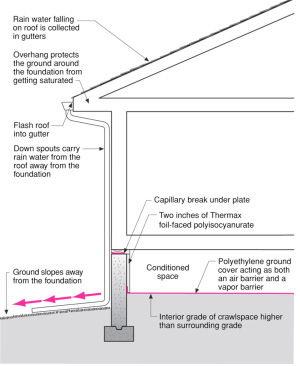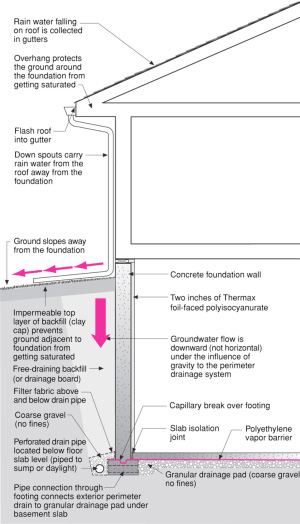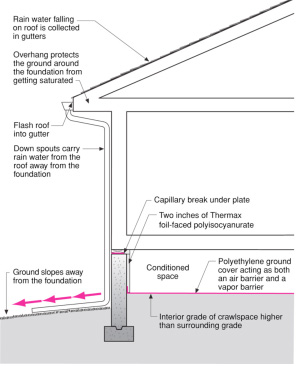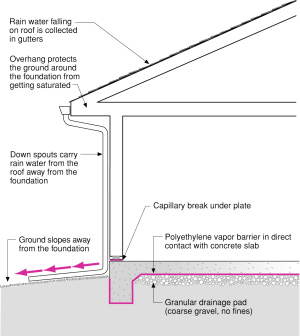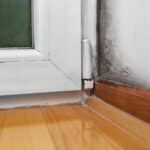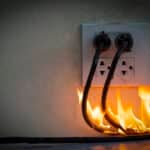Water managed foundation systems prevent the build-up of water against foundation walls, thereby eliminating hydrostatic pressure. No pressure, no force to push water through a hole.
Groundwater Control
Water managed foundation systems rely on two fundamental principles:
-
keep rain water away from the foundation wall perimeter;
-
drain groundwater with sub-grade perimeter footing drains before it gets to the foundation wall.
Water managed foundation systems are different from waterproofing systems. Waterproofing relies on creating a watertight barrier without holes. It can’t be done. Even boats need pumps. Water managed foundation systems prevent the build-up of water against foundation walls, thereby eliminating hydrostatic pressure. No pressure, no force to push water through a hole. Remember, we know the foundation wall will have holes.
Mixing control joints with water management is a fundamental requirement for functional foundation systems that provide an extended useful service life. Dampproofing should not be confused with waterproofing. Dampproofing protects foundation materials from absorbing ground moisture by capillarity. Damp-proofing is not intended to resist groundwater forces (hydrostatic pressure). If water management is used, waterproofing is not necessary. However, control of capillary water is still required (damp-proofing). Damp-proofing is typically provided by coating the exterior of a concrete foundation wall with a tar or bituminous paint or coating.
Draining groundwater away from foundation wall perimeters is typically done with free-draining backfill such as sand, gravel or other water-permeable material, or drainage boards or exterior foundation insulations with drainage properties.
Groundwater Control Details
Figure 1
Groundwater Control with Basements
- Keep rain water away from the foundation perimeter
- Drain groundwater away in sub-grade perimeter footing drains before it gets to the foundation wall
Figure 2
Groundwater Control with Crawlspaces
- Keep rain water away from the foundation perimeter
- If the interior crawlspace is lower than the exterior grade, a sub-grade perimeter footing drain is necessary as in a basement foundation
- The crawlspace in this configuration is conditioned space; it is part of the “interior” of the building and should be heated, cooled and ventilated as part of the building’s heating, cooling and ventilating strategy
Figure 3
Groundwater Control with Slabs
- Keep rain water away from the foundation perimeter
- Do not place sand layer over polyethylene vapor barrier under concrete slab

